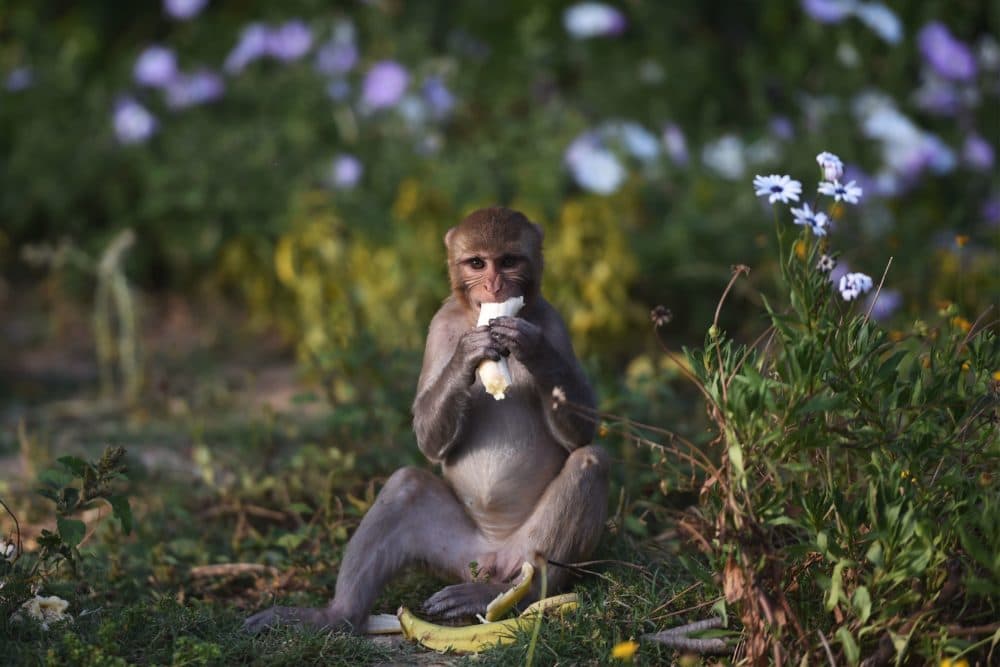Advertisement
On Point's Coronavirus Hours
Nature And The Coronavirus: As Humans Continue Lockdown, Wildlife Creeps Back In
Resume
Humanity in lockdown. Wildlife creeps back into cities around the world. We look at the pandemic from the animal kingdom's point of view.
Guests
David Baron, award-winning journalist. Former NPR environment correspondent and former WBUR science reporter. Author of "The Beast in the Garden: A Modern Parable of Man and Nature." (@dhbaron)
Alan Weisman, senior producer for Homelands Productions, an independent, nonprofit journalism cooperative. Author of "The World Without Us." (@HomelandsProd)
Niamh Quinn, human-wildlife interactions advisor for the University of California Cooperative’s South Coast Research and Extension Center. (@niamhnichuinn)
From The Reading List
Excerpt from "The World Without Us" by Alan Weisman
Excerpted from "The World Without Us" by Alan Weisman © 2007 by St. Martin's Thomas Dunne Books. Reprinted with the permission of the publisher, St. Martin's Thomas Dunne Books. All rights reserved.
Excerpt from "The Beast in the Garden: A Modern Parable of Man and Nature" by David Baron
Excerpted from "THE BEAST IN THE GARDEN: A Modern Parable of Man and Nature" by David Baron © 2004 by W. W. Norton. Reprinted with the permission of the publisher, W. W. Norton. All rights reserved.
Boston Globe: "Is the coronavirus pandemic Mother Nature’s revenge?" — "In China, I always admire how when it comes to food, nothing goes to waste. The Chinese eat practically everything: I’ve been served turtle knuckles, gelatin cubes made from duck’s blood, tuna eyeballs, sea horses, bowls of chicken feet, whole songbirds, and, yes, their nests. I once dined in a Chengdu Buddhist temple with biologists who counted more than 30 plant species on our plates."
Los Angeles Times: "Column: Bears thriving at Yosemite. Clear skies. Does coronavirus reveal a ‘World Without Us’?" — "Skies have cleared over the smoggiest urban centers, wildlife runs free in parks, streets and plazas, flowers rise from the cracks of formerly well-trodden sidewalks and birdsong replaces the more motorized score of modern daily life. With much of the world’s population on COVID-19 lockdown, nature has never seemed more gloriously present — sublimely indifferent to human anxieties, eager to run riot over all the places in which it was once controlled, to return to the spaces from which it was expelled."
Washington Post: "As humans stay indoors, wild animals take back what was once theirs" — "It's not easy being a baby sea turtle, hatching into a human's world. Curious children, leashless dogs, oblivious joggers: The dangers are many. Some never complete their postnatal dash to the ocean."
New York Times: "Animals Are Rewilding Our Cities. On YouTube, at Least." — "At the end of March I was, like many people, spending hours each day on the internet, my attention glued to graphs of projected deaths, maps of infection hot spots, photos of masked travelers huddled in subway cars. But then new images appeared, and they were quite unlike the others. Here were maps showing improvements in air quality, photographs of deserted streets and squares bathed in sunlight and, most surprising, videos of wild animals thriving in newly deserted towns and cities."
Washington Post: "The coronavirus pandemic has halted tourism, and animals are benefiting from it" — "As the coronavirus pandemic spreads, lockdowns are extended and restrictions on global travel continue to tighten, one of the industries hit hardest by the lack of travelers has been animal tourism."
Wired: "The Coronavirus Lockdown Is a Threat for Many Animals, Not a Blessing" — "It’s a trope from any movie about the end of humanity: Vegetation slowly reclaims cities, while deer and foxes roam the streets. Probably the closest we’ll ever get to this scenario without an actual apocalypse is happening right now in locked-down metropolises across the world. In San Francisco, coyotes—normally scared away by cars— are traipsing across the desolate Golden Gate Bridge. In the Welsh town of Llandudno, mountain goats are moving in. In Barcelona, wild boar have infiltrated the city center."
Weforum: "Nature’s comeback? No, the coronavirus pandemic threatens the world’s wildlife" — "Despite promising signs that lack of human activity had lead to flourishing wildlife across the world, loss of income is causing some people to exploit the environment. Wild animals, fish and forest trees are rarely owned by anyone, and they are found in rural areas where policing is difficult."
This program aired on April 29, 2020.

